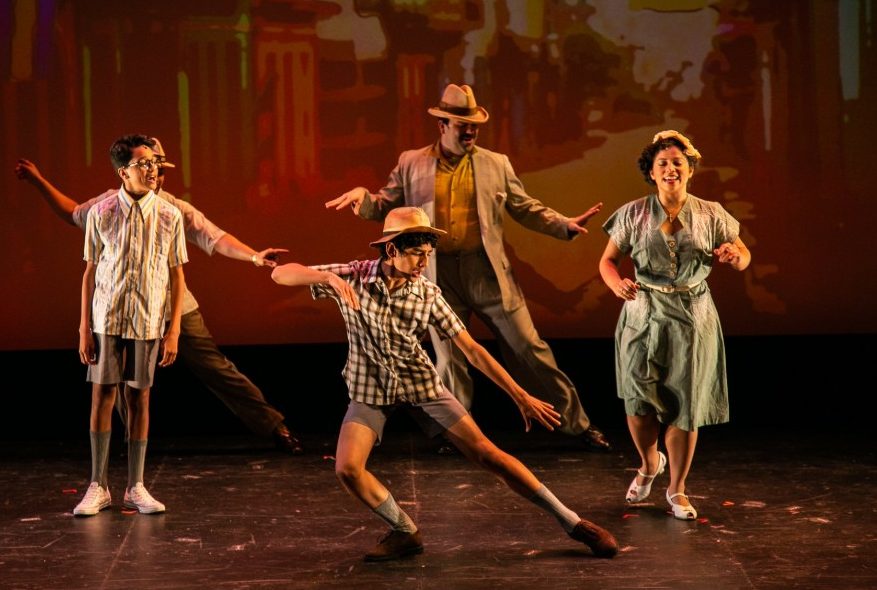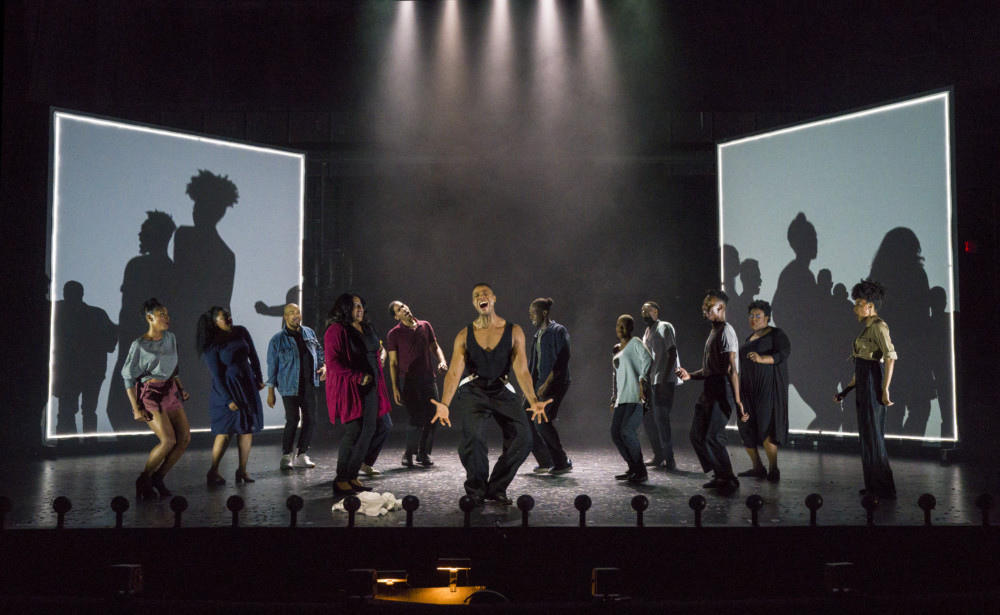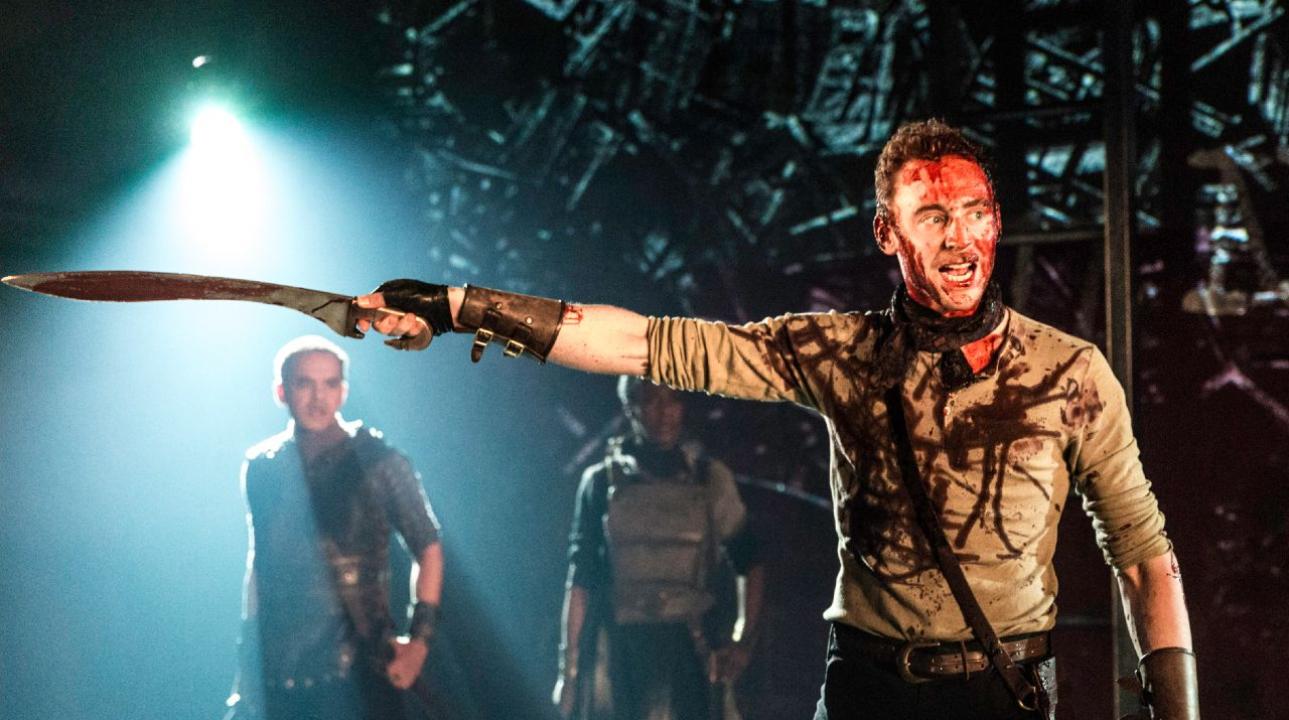
Tom Hiddleston as Coriolanus
By Hazen Cuyler
As we approach The National Theatre at Home’s final chapters, we find ourselves inside the spray-painted walls of a starved, dystopian empire. We meet General Caius Martius, a legendary force of nature driven by violent willpower. Played by Tom Hiddleston, his superhero star status continues The National’s celebrity-studded YouTube season. Directed by Josie Rourke and streaming thru June 11, William Shakespeare’s Coriolanus urges us to recognize when enthusiastic leaders persuade with anger and destructive wills.
Caius Martius is a powerful Roman General at a time of hunger and civil unrest. After leading a successful battle against the Volscians (a territory near Rome), he is awarded the honorary surname, “Coriolanus” (Conqueror of Corioli, a town in Volsci). Encouraged by his mother, he runs for Consul (highest elected Roman office), is nominated and quickly betrayed by other Senators. Exiled, Caius Martius Coriolanus returns to Volsci, driven to lead their army against Rome.
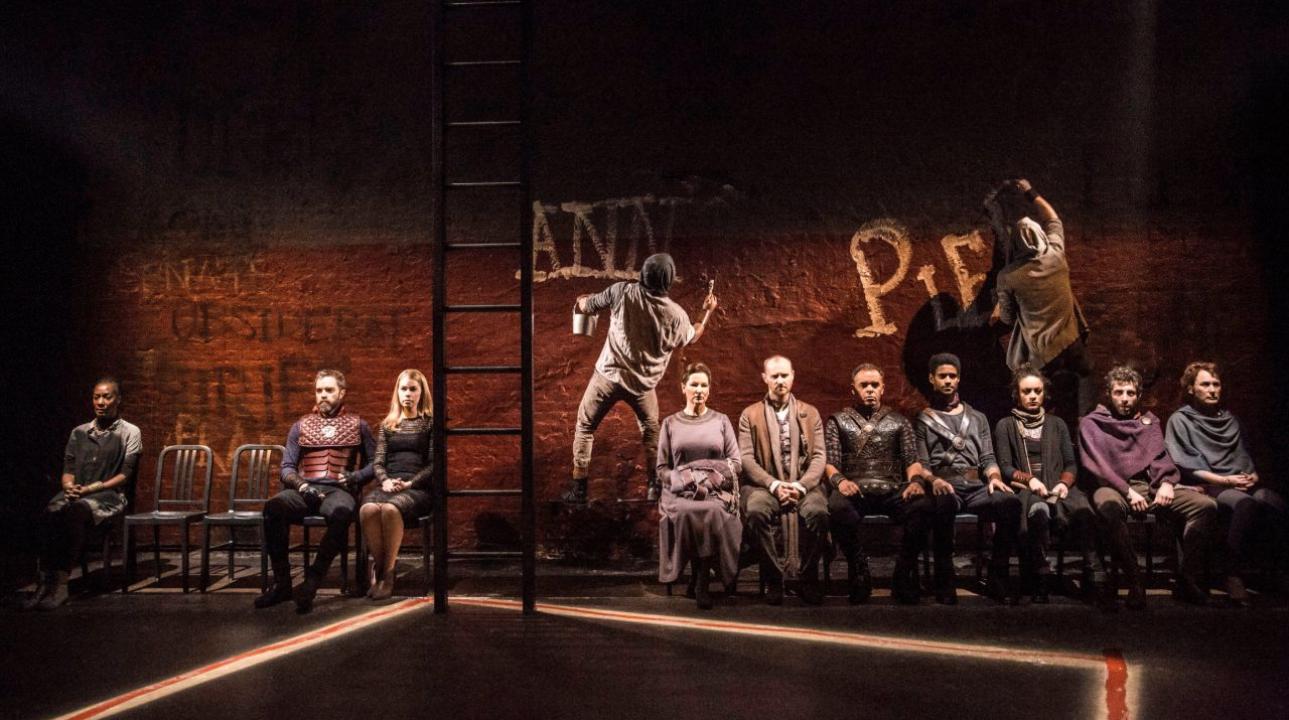

The Company
Many actors, regardless of experience or accomplishment, cling onto anger’s often-generalized passion as a source of secure-feeling, immediate inspiration. This universal trend is supported by audiences as we inaccurately celebrate passion, confusing it with talent. Coriolanus’ title role demands this passion’s intensity and the talented Mr. Hiddleston’s Caius Martius Coriolanus is compelling but his anger’s unwavering rhythm washes over nuance and leaves his performance feeling a bit flat. A similar pattern persists through Ms. Rourke’s moody direction, favoring consistent tone over detail.
Coriolanus’ wife and child beg for an end to his campaign against Rome. Isolated under harsh white light, he speaks as through a dreamlike haze. Here, Mr. Hiddleston’s relationships appear almost interchangeable, providing few significant indications of personal history. Whether surrounded by Roman army peers or Senator foes, Hiddleston’s widespread scorn is seldom targeted. Campaigning for citizen’s votes, we witness identical insincere smiles, unaffected by any person’s individuality. Hiddleston’s work feels motivated by an inner, generic energy, mostly anger, placed on top of Shakespeare’s words, approximating relationships and circumstances; driven more by impulsive waves of passion than by Coriolanus’ relationship to other human beings and circumstances.
The ensemble plays multiple Roman and Volscian citizens but a lack of discernible character identity causes momentary confusion. Rochenda Sandall plays such characters. In Rome, she fearlessly confronts a high-ranking political official and in Volsci, she fearlessly confronts Coriolanus. In both instances, her distinct features and behavior are so similar it takes a moment to realize she is representing different people.
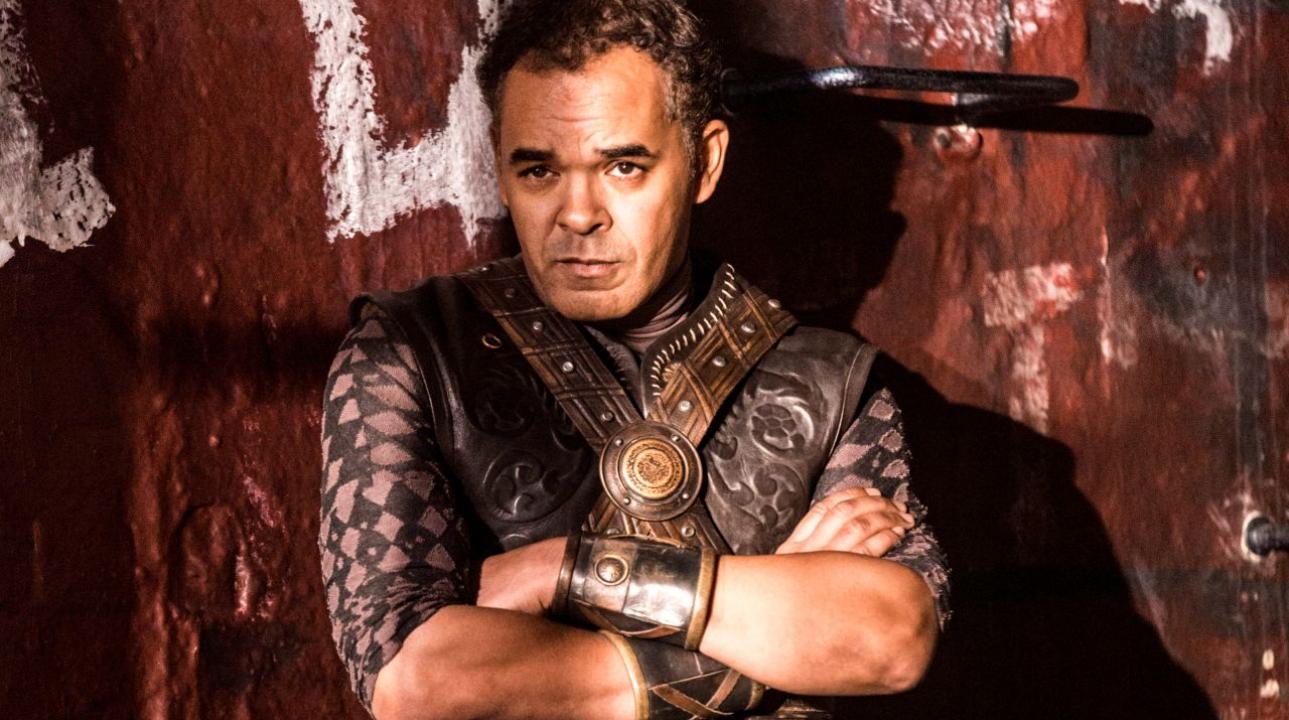

Peter De Jersey
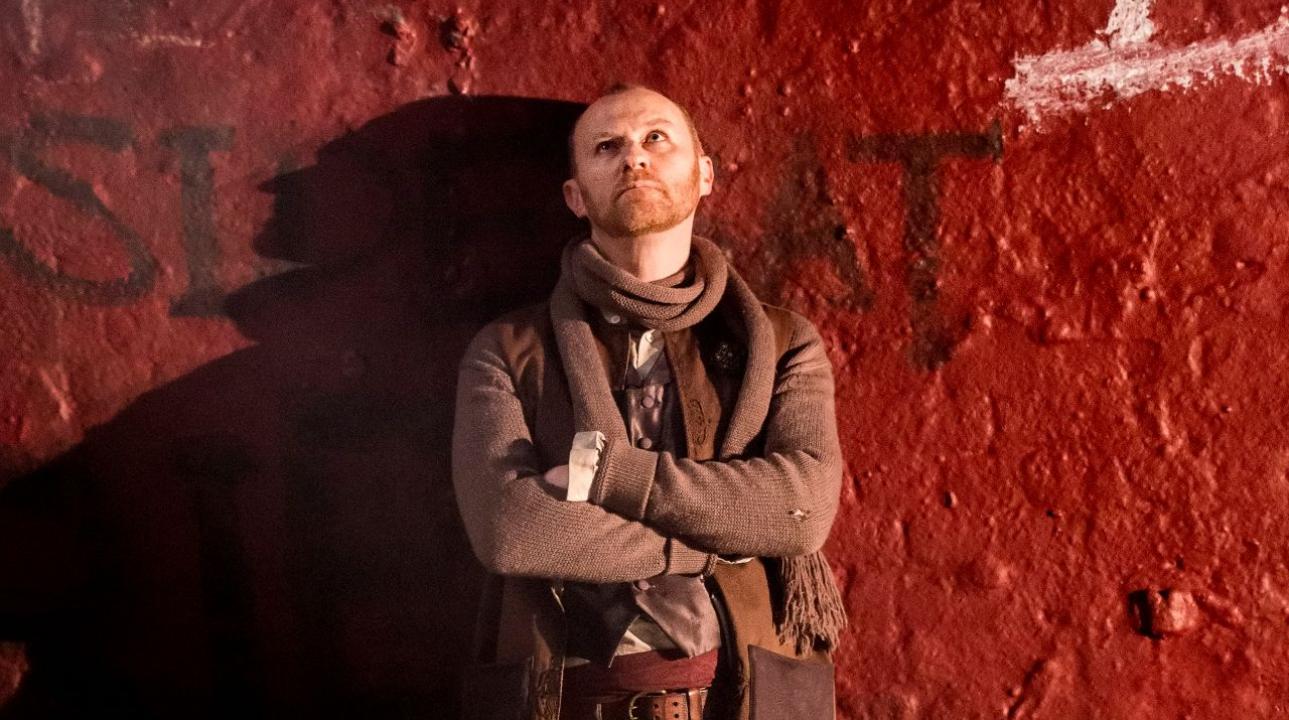

Mark Gatiss
Within Ms. Rourke’s timeless Roman setting (simple and adaptive design by Lucy Osborne), we trudge through grungy moods but frequently ignored details cause irritation. Coriolanus’ battle-torn body bears deep, gruesome scars and a sling supports his damaged left arm. Voter ballots are dumped at Mr. Hiddleston’s feet. On his hands and knees, he grasps them impulsively, forgetting any injury or handicap his sling supported. In speaking to his mother and in speaking to the Roman Senate, his damaged arm gestures without consequence. Others remain insensitive to this injury as well. Mark Gatiss, playing Menenius, unnecessarily shoves the injured warrior in the chest without caution or consideration. Cominius (played by Peter De Jersey) grabs the injured arm before thinking there might be a better option from which to choose. These moments are consistent and widespread enough that to blame individual actors, scene by scene is irrational.
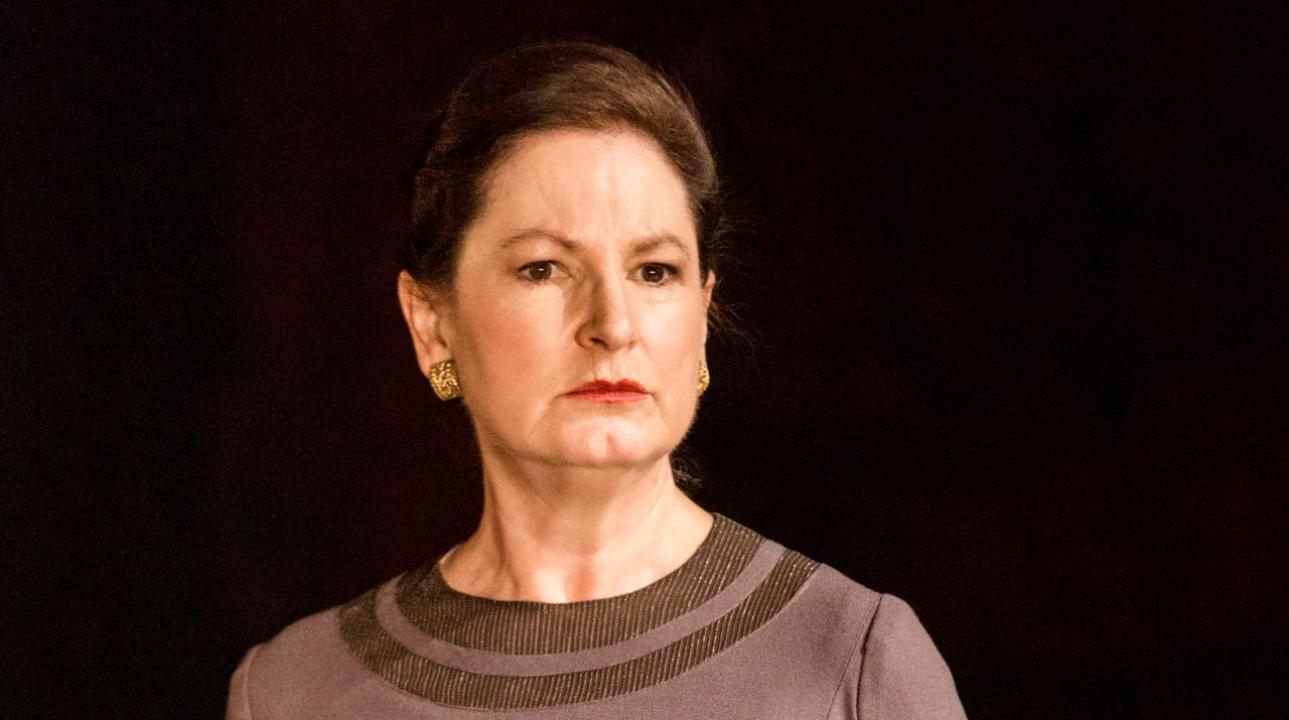

Deborah Findlay
Deborah Findlay plays Volumnia, Coriolanus’ hardened mother. Tightly bound hair, dark maroon lipstick and clothed in conservative dress, she demands excellence. Ms. Findlay and Mr. Hiddleston share a moving, trust-filled relationship. Obedient to his mother’s devastating plea, tears stream down Mr. Hiddleston’s cheeks. Grasping the cost of her request, Ms. Findlay’s body hollows. Her empty eyes stare across the infinite landscape of despair. A seasoned life of endless fall. She stands empty in a field, locked in time, alone forever among descending crumpled leaves.
Today we reside in ambition’s society. A winning-obsessed world of the cheering masses; worshiping charismatic victory over difficult to understand realities. We watch Coriolanus– a play rarely seen by or read by or known by those who would follow mad men. A play depicting tyrants who would lead us beyond our aim. A play revealing our mad ambitions, gently soothed as in a dream, guiding us from our misadventures.
Photos: Johan Persson
The National Theatre’s Production of Coriolanus streams on YouTube through June 11. 2hrs 30mins. with a very brief intermission. https://www.youtube.com/watch?v=XHqkEruwBT0




